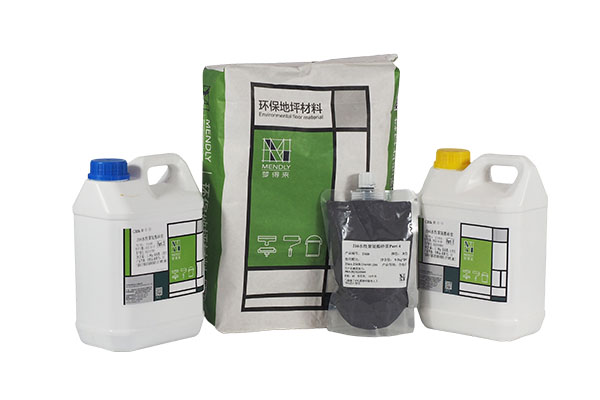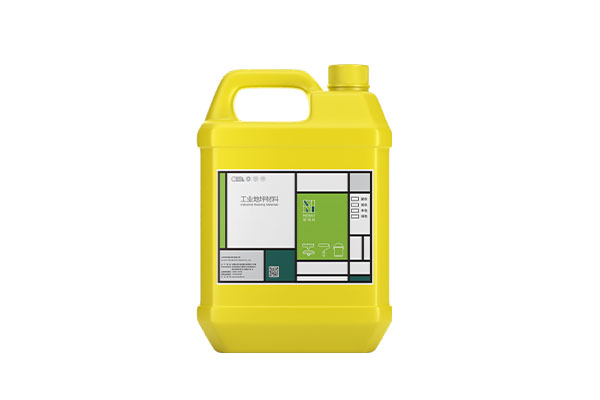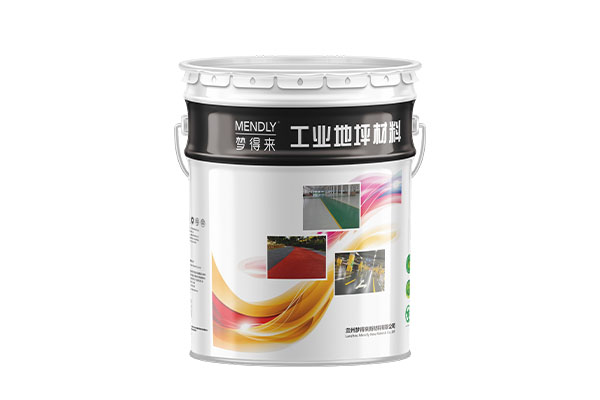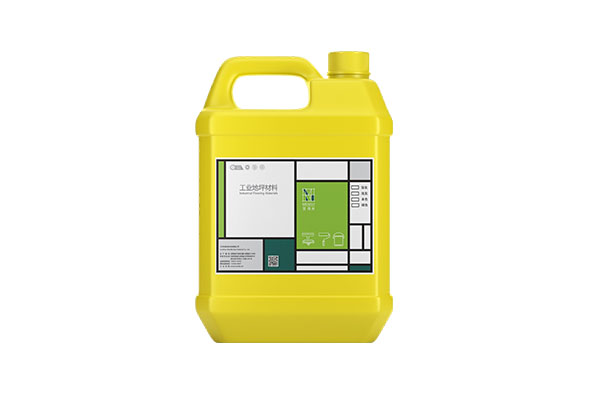How resistant is waterborne polyurethane mortar floor to chemical corrosion?
Release Time : 2025-07-21
In industrial and commercial environments, the choice of floor materials is crucial. Especially in places that are often exposed to chemicals, such as chemical plants, pharmaceutical workshops, food processing plants, etc., the floor must not only have good physical properties, but also have strong chemical resistance. Waterborne polyurethane mortar flooring is an ideal choice for these occasions because of its excellent resistance to chemical corrosion.
1. The basis of chemical resistance
Waterborne polyurethane mortar flooring is a high-performance flooring material made of waterborne polyurethane resin and carefully graded aggregates. Its core component, polyurethane resin, has excellent chemical stability and can resist corrosion from a variety of acid, alkali, salt solutions, organic solvents and other corrosive substances. In addition, the material also has excellent wear resistance and impact resistance, which further enhances its service life in harsh environments.
2. Facing acid and alkali challenges
In many industrial environments, the floor may frequently come into contact with various acidic and alkaline substances. For example, in chemical production and laboratories, strong acid and alkali solutions such as sulfuric acid, nitric acid, and sodium hydroxide are often used. Waterborne polyurethane mortar flooring can effectively resist the erosion of these strong acids and alkalis due to its special chemical structure. Studies have shown that high-quality waterborne polyurethane mortar can remain stable under extreme conditions with a pH range of 0 to 14, which means that it can not only withstand the erosion of strong acids (such as sulfuric acid), but also cope with the challenges of strong alkalis (such as sodium hydroxide).
3. Ability to resist organic solvents
In addition to acids and alkalis, organic solvents are also one of the important factors causing floor corrosion. In printing plants, paint workshops and some pharmaceutical factories, organic solvents such as toluene, acetone, and dichloromethane are widely used. Ordinary floor materials are prone to dissolution or expansion in this environment, resulting in surface damage. However, waterborne polyurethane mortar flooring forms a dense protective layer due to its tightly cross-linked structure between molecular chains, which can effectively block the invasion of most organic solvents, thereby protecting the base from damage.
4. Anti-grease and food processing-related chemicals
The food processing industry has particularly strict requirements on the floor. It must not only meet food safety standards, but also be able to resist the long-term effects of substances such as grease, fat, and juice. Waterborne polyurethane mortar flooring has excellent oleophobicity, is not easily penetrated by grease, and is easy to clean and maintain. At the same time, it can also resist the erosion of chemicals such as disinfectants and cleaning agents used in food processing, ensuring the safety and hygiene of the production environment.
5. Chemical stability under temperature changes
It is worth noting that waterborne polyurethane mortar flooring not only performs well at room temperature, but also maintains good chemical resistance under high or low temperature conditions. This is because the polyurethane material itself has good thermal stability, and even if it is exposed to high-temperature steam or the low-temperature environment of the freezer for a short time, there will be no significant changes in physical or chemical properties. Therefore, this type of floor is particularly suitable for places that require frequent heat treatment or refrigeration operations, such as cold storage, cooking room, etc.
6. The influence of construction technology on chemical resistance
Although waterborne polyurethane mortar itself has strong chemical resistance, the correct construction technology cannot be ignored. In order to ensure the best effect, the base surface must be dry, flat and oil-free before construction; during the construction process, the materials should be mixed strictly according to the proportions guided by the manufacturer, and attention should be paid to controlling the temperature and humidity conditions. Only in this way can the maximum potential of waterborne polyurethane mortar flooring be fully utilized to provide long-lasting and reliable protection.
In summary, waterborne polyurethane mortar flooring has demonstrated incomparable advantages in many fields with its excellent chemical resistance. Whether facing strong acids and alkalis, organic solvents, or complex food processing environments, it can provide effective protection, extend the service life of facilities and reduce maintenance costs. With the advancement of technology and the continuous expansion of application fields, it is believed that waterborne polyurethane mortar flooring will play an important role in more fields in the future, creating a safer and more efficient working environment for various enterprises.
1. The basis of chemical resistance
Waterborne polyurethane mortar flooring is a high-performance flooring material made of waterborne polyurethane resin and carefully graded aggregates. Its core component, polyurethane resin, has excellent chemical stability and can resist corrosion from a variety of acid, alkali, salt solutions, organic solvents and other corrosive substances. In addition, the material also has excellent wear resistance and impact resistance, which further enhances its service life in harsh environments.
2. Facing acid and alkali challenges
In many industrial environments, the floor may frequently come into contact with various acidic and alkaline substances. For example, in chemical production and laboratories, strong acid and alkali solutions such as sulfuric acid, nitric acid, and sodium hydroxide are often used. Waterborne polyurethane mortar flooring can effectively resist the erosion of these strong acids and alkalis due to its special chemical structure. Studies have shown that high-quality waterborne polyurethane mortar can remain stable under extreme conditions with a pH range of 0 to 14, which means that it can not only withstand the erosion of strong acids (such as sulfuric acid), but also cope with the challenges of strong alkalis (such as sodium hydroxide).
3. Ability to resist organic solvents
In addition to acids and alkalis, organic solvents are also one of the important factors causing floor corrosion. In printing plants, paint workshops and some pharmaceutical factories, organic solvents such as toluene, acetone, and dichloromethane are widely used. Ordinary floor materials are prone to dissolution or expansion in this environment, resulting in surface damage. However, waterborne polyurethane mortar flooring forms a dense protective layer due to its tightly cross-linked structure between molecular chains, which can effectively block the invasion of most organic solvents, thereby protecting the base from damage.
4. Anti-grease and food processing-related chemicals
The food processing industry has particularly strict requirements on the floor. It must not only meet food safety standards, but also be able to resist the long-term effects of substances such as grease, fat, and juice. Waterborne polyurethane mortar flooring has excellent oleophobicity, is not easily penetrated by grease, and is easy to clean and maintain. At the same time, it can also resist the erosion of chemicals such as disinfectants and cleaning agents used in food processing, ensuring the safety and hygiene of the production environment.
5. Chemical stability under temperature changes
It is worth noting that waterborne polyurethane mortar flooring not only performs well at room temperature, but also maintains good chemical resistance under high or low temperature conditions. This is because the polyurethane material itself has good thermal stability, and even if it is exposed to high-temperature steam or the low-temperature environment of the freezer for a short time, there will be no significant changes in physical or chemical properties. Therefore, this type of floor is particularly suitable for places that require frequent heat treatment or refrigeration operations, such as cold storage, cooking room, etc.
6. The influence of construction technology on chemical resistance
Although waterborne polyurethane mortar itself has strong chemical resistance, the correct construction technology cannot be ignored. In order to ensure the best effect, the base surface must be dry, flat and oil-free before construction; during the construction process, the materials should be mixed strictly according to the proportions guided by the manufacturer, and attention should be paid to controlling the temperature and humidity conditions. Only in this way can the maximum potential of waterborne polyurethane mortar flooring be fully utilized to provide long-lasting and reliable protection.
In summary, waterborne polyurethane mortar flooring has demonstrated incomparable advantages in many fields with its excellent chemical resistance. Whether facing strong acids and alkalis, organic solvents, or complex food processing environments, it can provide effective protection, extend the service life of facilities and reduce maintenance costs. With the advancement of technology and the continuous expansion of application fields, it is believed that waterborne polyurethane mortar flooring will play an important role in more fields in the future, creating a safer and more efficient working environment for various enterprises.







